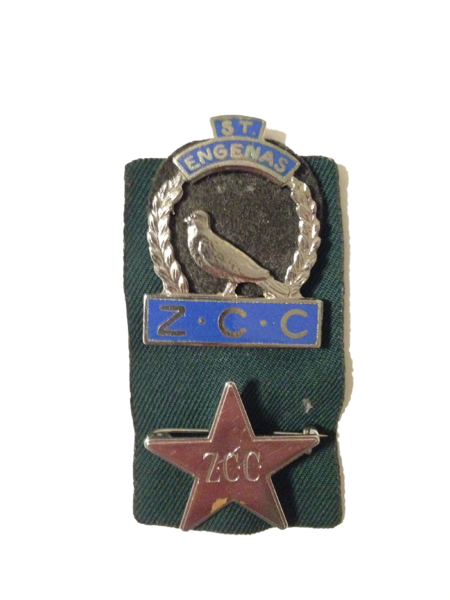The largest and fastest-growing of the African independent churches in the 1990s is the Zion Christian Church[i] . Its members, estimated to number between 2 million and 6 million in more than 4,000 parishes, live primarily in urban townships and rural communities. The church is well known by the abbreviation, ZCC, pronounced "zed-see-see." The ZCC was established in 1924 by Joseph Engenas Matlhakanye Lekganyane, a farm worker in a rural area that later became Zion City, in the Northern Province. Lekganyane was educated by Scottish Presbyterian missionaries, and the church reflects some elements of that religion. Lekganyane was initially a member of the ZAC following the healing of his eye ailment through the tri-baptismal the church practised as a part of their member recruitment program. Some members of the Christian community did agree with this, but the church continued to carry out the baptismal services of this nature. Lekganyane left the ZAC and went to Lesotho in 1920; there he joined Edward Motaung’s Zion Apostolic Faith Mission and was ordained as a bishop of the ZAFM for the Transvaal. Due to differences pertaining to administrative matters, Lekganyane left ZAFM late 1924 or early 1925 and started his own church; the Zion Christian Church.[ii]
 The ZCC church medal introduced to the church by Edward Lekganyane during his reign Image source
The ZCC church medal introduced to the church by Edward Lekganyane during his reign Image source
The ZCC took its name from Biblical references to the Mount of Zion in Jerusalem, based in part on the inspiration of a similar community in Zion, Illinois. The church was initially based in Thabakgone, near Polokwane. It moved to Moria (the current headquarters) following clashes with the chief.[iii] The ZCC grew rapidly; its 926 adherents in 1925 became 2000 by 1935 and 8000 by 1940. In the next 2 years, membership of the church had trebled to 27487 and it had spread to Zimbabwe, Botswana and the Northern Cape.
Joseph passed away on June 1st 1948 and was succeeded by his son who continued the legacy and followed his father’s rules and teachings religiously. He was succeeded by his son Edward, who sought to steer the ZCC in a more biblical direction. Away from messianic elements which viewed Lekganyane, the founder, as an African messiah. He introduced the all-male Mokhukhu organization which wore military style Khakhi’s, police style hats and the star badge[iv] . Edward was succeeded by his son Barnabas in 1967
The highlight of the ZCC religious calendar is the Easter celebration, which has drawn more than 1 million church members for several days of religious services at Zion City. Zionist beliefs emphasize the healing power of religious faith, and for this reason ZCC leaders sometimes clash with the traditional healers, or sangomas, who are important in many belief systems[v] . Despite occasional conflicts, however, the ZCC respects traditional African religious beliefs, in general, especially those concerning the power of the ancestors to intercede on behalf of humans.
Endnotes
[i] Zion Christian Church, Rita M. Byrnes, ed. South Africa: A Country Study. Washington: GPO for the Library of Congress, 1996 - www.countrystudies.us/south-africa/54.htm ↵
[ii] www.sola5.org/the-zcc-in-south-africa/ ↵
[iii] S Grant, Church and chief in the Colonial Era. www.journals.co.za/docserve/fulltext/botnotes/3/1/711.pdf?expires=1484566191&id=id&accname=guest&checksum=5c9157E0157E513265EEF21358CD25224D.11 ↵
[iv] http://www.polokwanecity.co.za/history-of-zion-christian-church-zcc/ ↵
[v] www.photius.com/countries/south-africa/society/south-africa-society-zion-christian-church~2454.html ↵
[vi] www.sowetanlive.co.za/goodlife/2012/07/31/history-of-zion-christian-church ↵